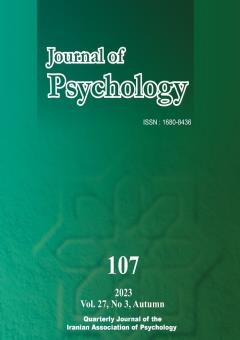Comparing the Effectiveness of Transcranial Direct Current Stimulation and Cognitive Behavioral Therapy Treatments on Sexual Desire Disorder in Men
Subject Areas : روانشناسی بالینی و آسیب شناسی روانیhossein ranjbar shayan 1 , Seyed Mahmoud Tabatabaei 2 , Amir Panah Ali 3
1 - Department of Psychology, faculty of Educational Sciences and Psychology, Tabriz Branch, Islamic Azad university, Tabriz, Iran
2 - Department of Medical Physiology, Medical Sciences University of Tabriz Branch, Islamic Azad University, Tabriz, Iran.
3 - Department of Psychology, faculty of Educational Sciences and Psychology, Tabriz Branch, Islamic Azad university, Tabriz, Iran
Keywords: Libido reduction disorder, CBT-based treatment, tDCS-based treatment ,
Abstract :
Sexual desire disorder can be defined as a decrease in sensual feelings, thoughts and fantasies. The purpose of this research is to compare the effectiveness of Transcranial Direct Current Stimulation and cognitive behavioral therapy on libido disorder in men. The research method was semi-experimental with a pre-test and post-test design. The statistical population of the present study consisted of all men who suffered from the problem of decreased libido and for this purpose, they referred to medical centers in Tabriz city and received the diagnosis of decreased libido disorder. The research sample included 30 men who had the problem of decreased sexual desire and were randomly selected in three groups including the first experimental group (tDCS), the second experimental group (CBT) and the control group. Halbert's test was used to collect data. Single-variable covariance analysis was used for statistical analysis using SPSS-26 software. The results of the analysis showed that both treatment methods are effective in the dependent variable (decrease of sexual desire disorder).
